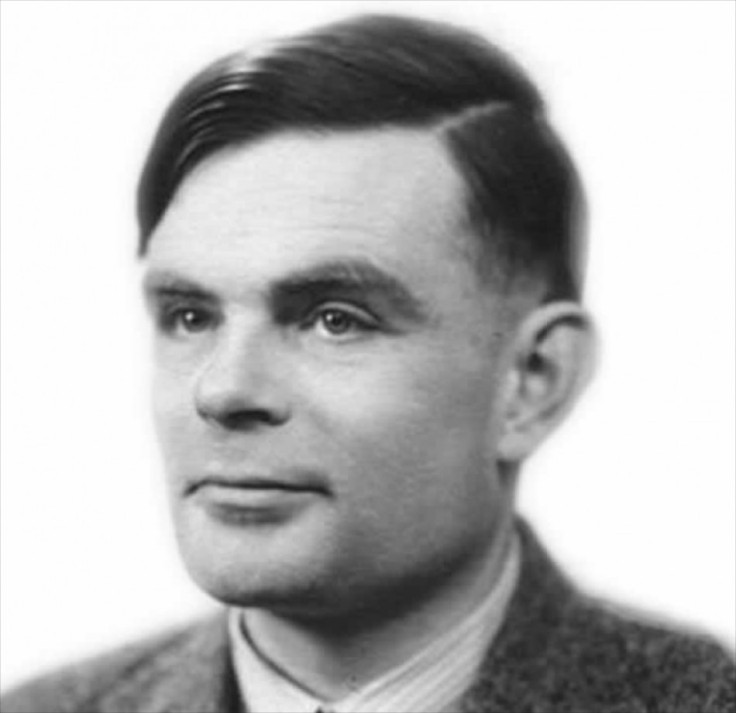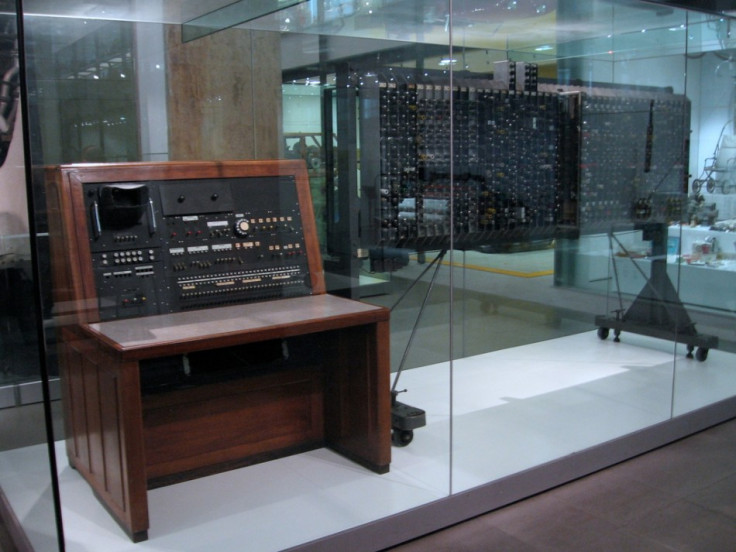Alan Turing - Life and Tragic Death of Enigma and Computing Hero
Saturday, 23 June will mark 100 years since the birth of Alan Turing, who not only spearheaded Britain's code breaking at Bletchley Park which saw the German Enigma machine cracked, but also researched artificial intelligence and helped to create the world's first commercially sold computer.

Born in Maida Vale, London in 1912, Turing showed signs from a young age that he was a particularly gifted child when it came to mathematics and went on to study the subject at King's College, Cambridge, where he gained a first-class honours degree at the age of 21.
Bletchley Park and Cracking the Enigma
During the Second World War, Turing joined the war effort at Bletchley Park, Buckinghamshire, where he worked with a team of mathematicians to try and crack the German Enigma code using an electromagnet machine called a "bombe".
The bombe searched for possible correct settings used for an Enigma message and for each possible setting the bombe performed a chain of logical deductions.
Detecting when a contradiction had occurred, the bombe ruled out that setting and moved on to the next.
Most of the possible settings would cause contradictions and be discarded, leaving only a few to be investigated in detail. The first bombe was installed on 18 March 1940, but by the end of the war more than 200 bombes were in use.
Artificial Intelligence and the Turing Test
Turing's research into artificial intelligence (AI) gave way to what has become known as the Turing Test, which is used to determine if a machine is capable of thought.
The test involved an interrogator asking a set of questions to a person and a computer, who would both give answers aimed at deceiving the interrogator about their true identities.
If the person asking the questions could not tell the difference between human and machine, then the computer would be considered to have artificial intelligence and be thinking for itself.
Of course, the hardware available to Turning some 60 years ago was not able to give the level of intelligence that he was looking for, but he predicted that by the year 2000, 70 percent of people taking the test would fail and be outwitted by a computer after five minutes of questioning.
Sadly though, it seems that Turing was a little off the mark with his predictions of future AI , as even though an iPhone has hundreds of times the storage capacity and processing power he thought necessary, we're not outsmarted by Siri on a regular basis just yet.
Although we're still a long way off from being fooled by computers - and many are probably glad of that - this didn't stop New York businessman Hugh Loebner from setting up the annual Loebner Prize in 1990, with a $100,000 (£63,500) prize awarded to the creator of a computer that can pass the Turing test.
In 22 years no computer has yet come close to claiming the prize, leading AI scientist Marvin Minsky to say in 1995: "I do hope that someone will volunteer to violate this proscription so that Mr Loebner will indeed revoke his stupid prize, same himself some money, and spare us the horror of this obnoxious and unproductive annual publicity campaign."
Father of computing
Often called the "father of computing", Turing was something of an eccentric character during his time working at Bletchley Park; colleague Jack Good is quoted by Ronald Lewin in his book Ultra Goes to War: The Secret Story as saying:
"In the first week of June each year he would get a bad attack of hay fever, and he would cycle to the office wearing a service gas mask to keep the pollen off. His bicycle had a fault: the chain would come off at regular intervals. Instead of having it mended he would count the number of times the pedals went round and would get off the bicycle in time to adjust the chain by hand. Another of his eccentricities is that he chained his mug to the radiator pipes to prevent it being stolen."
By the mid-1940s, a team of mathematicians and engineers at the University of Pennsylvania had produced a report of a computer for the US Army, outlining the design of the Electronic Discrete Variable Automatic Computer, or Edvac.
Edvac was designed - in theory at least - in a similar way to what we would now call a universal computer, with programs stored inside it. The computer would be capable of applying high-speed and automated computations to a wide range of problems.
Seeing the potential of such a machine, Turing was employed by the National Physical Laboratory (NPL) in Teddington, Surrey to set to work designing what would be known as ACE - the Automatic Computing Engine.

In the spring of 1948, while Turing was on a sabbatical at Cambridge University, construction began on the Pilot Ace computer, and it would eventually run its first program in May 1950.
While Turing remained away at Cambridge, at least five other teams in the UK - and many more in America - set to work developing and building stored-program universal computers similar to that outlined in Turing's Edvac Report.
By 1948, one of these spin-off computers came to life at Manchester University, and although bearing only little resemblance to his report, they interested Turing enough for him to take up work at the university in the electrical engineering department, where he contributed to the design of the machine's input/output systems and suggested ideas for improvement.
This work ultimately led to gaining government support and help from local engineering firm Ferranti which, in February 1951, delivered what is believed to be the world's first commercially available computer - the Ferranti Mark 1.
Turing's homosexuality and untimely death
Turing was gay, and had a relationship with a technician called Arnold Murray while he was working at Manchester University.
In 1952 Turing reported a crime involving Murray to the police, and during the investigation admitted that he was having a sexual relationship with the technician.
As homosexuality was illegal in Britain at the time, Turing was arrested and charged with gross indecency, but was spared jail as he agreed to be chemically castrated by taking a year-long prescription of oestrogen, which had devastating mental and physical effects on him.
Two years later, on 8 June 1954, Turing was found dead with a half-eaten and cyanide-laced apple at his side.
Although the cause of death was never confirmed, it is thought that Turing took a bite to kill himself amid the pressures he faced living as a homosexual and the effects chemical castration caused.
His mother insisted that Turing's death was an accident and that he had inhaled fumes while experimenting with gold plating, but those who knew him likened the act of eating a poisoned apple to a similar scene in his favourite film, Snow White.
To celebrate the life of Alan Turing, a German Enigma machine and the Pilot Ace computer - which was once the world's fastest - will be part of an exhibition on display at London's Science Museum
Codebreaker - Alan Turing's Life and Legacy is on till 31 July, free entry.
© Copyright IBTimes 2025. All rights reserved.






















